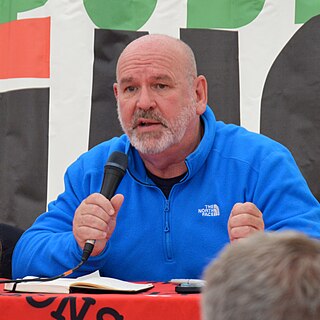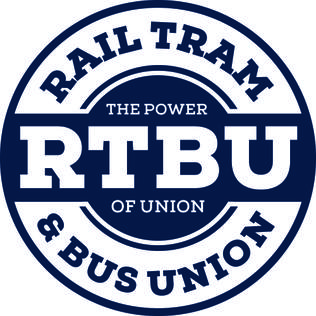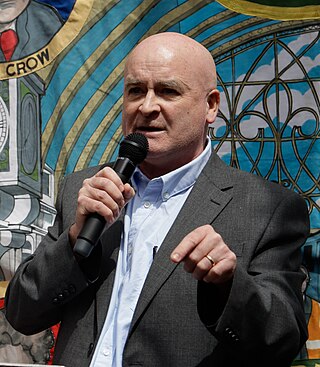Related Research Articles
British Railways (BR), which from 1965 traded as British Rail, was a state-owned company that operated most rail transport in Great Britain from 1948 to 1997. Originally a trading brand of the Railway Executive of the British Transport Commission, it became an independent statutory corporation in January 1963, when it was formally renamed the British Railways Board.

Virgin Trains (VT) was a train operating company in the United Kingdom owned by Virgin Rail Group, a joint venture between Virgin Group and Stagecoach, which operated the InterCity West Coast franchise from 9 March 1997 to 7 December 2019. The franchise covered long-distance passenger services on the West Coast Main Line between London, the West Midlands, North West England, North Wales and southern Scotland, consequently connecting six of the UK's largest cities: London, Birmingham, Manchester, Liverpool, Glasgow and Edinburgh, which have a combined metropolitan population of over 18 million. It had around 3,400 employees in 2015.

Robert Crow was an English trade union leader who served as the General Secretary of the National Union of Rail, Maritime and Transport Workers (RMT) from 2002 until his death in 2014. He was also a member of the General Council of the Trades Union Congress (TUC). A self-described "communist/socialist", he was a leading figure in the No to EU – Yes to Democracy campaign.

The Associated Society of Locomotive Engineers and Firemen (ASLEF) is a British trade union representing drivers of trains including services such as the London Underground (Tube). It is part of the International Transport Workers' Federation and the European Transport Workers' Federation. At the end of 2019 ASLEF had 24,479 members. Mick Whelan became its General Secretary in 2011.

The National Union of Rail, Maritime and Transport Workers is a British trade union covering the transport sector. Its current President is Alex Gordon and its current General Secretary is Mick Lynch.

DB Cargo UK is a British rail freight company owned by Deutsche Bahn and headquartered in Doncaster, England.

Virgin CrossCountry was a train operating company in the United Kingdom that operated the InterCity CrossCountry passenger franchise from January 1997 until November 2007. Along with the InterCity West Coast franchise held by a separate legal entity, the company traded under the Virgin Trains brand.
Mick Rix is a British trade unionist and politician.
James Knapp was a British trade unionist. He was successively General Secretary of the National Union of Railwaymen (NUR) from 1983, and then of the merged National Union of Rail, Maritime and Transport Workers (RMT) from 1990 to his death in 2001. He served on the executive board of the International Transport Workers' Federation from 1983 to 2001, the General Council of the Trades Union Congress from 1983 to 2001, and was President of the Trades Union Congress in 1994.
Sidney Weighell was an English footballer, trade unionist and the General Secretary of the National Union of Railwaymen from 1975 to 1983.

Karen Harrison was the first woman in Britain to be appointed as a train driver, during which time she was an active trade unionist and political campaigner.
Shaun Brady is a British trade unionist who was general secretary of the Associated Society of Locomotive Engineers and Firemen (ASLEF), the train drivers' trade union in Great Britain.
The awkward squad was an informal grouping of socialist trade unionists in the United Kingdom.

John Michael Whelan is the 18th General Secretary of the British trade union ASLEF, a position he has held since 2011.

Virgin Rail Group is a British rail transport company that was formed by the Virgin Group to bid for rail franchises in the United Kingdom during the privatisation of British Rail in the late 1990s.

The Rail, Tram and Bus Union Victorian Branch or RTBU Victoria is the state branch of the RTBU in Victoria. Originally formed in 1993 as the Victorian branch of the Public Transport Union and renamed the RTBU in 1998, the RTBU Victoria today represents nearly 8000 members across Rail Operations, Tramways, Locomotive, Infrastructure and Administrative areas of Victoria's public transport industry.

The impact of the privatisation of British Rail has been the subject of much debate, with the stated benefits including improved customer service, and more investment; and stated drawbacks including higher fares, lower punctuality and increased rail subsidies. The privatisation of British Rail began in the 1990s.
James Gilroy Baty was a British trade unionist.

Michael Lynch is a British-Irish trade unionist who has served as the General Secretary of the UK's National Union of Rail, Maritime and Transport Workers since May 2021. Since the high-profile rail strikes of 2022-2023, Lynch has become a spokesperson and symbol for the wider trade unionist movement.
The 2022–2024 United Kingdom railway strikes were an industrial dispute between rail workers and companies, with the latter supported by the UK government. The rail workers are represented by several unions including the National Union of Rail, Maritime and Transport Workers (RMT) and the Associated Society of Locomotive Engineers and Firemen (ASLEF). The railway strikes commenced on 21 June 2022 after workers walked out over wages, planned changes to working practices – involving the removal of guards from trains, the reduction in the number of open ticket offices, and an increase in the age at which people could claim the young persons and senior citizen card – and the threat of redundancies. The industrial action was the largest in the sector since 1989, and involved 40,000 workers nationwide.
References
- ↑ "Adams, Lewis Drummond", Who's Who
- 1 2 Union boss hops on board Virgin BBC News 19 October 1998
- ↑ Curriculum vitae: Lew Adams BBC News - 19 October 1998
- ↑ Interview with Lew Adams, Board Member, Strategic Rail Authority, UK 26 November 2004 Archived 25 June 2013 at the Wayback Machine , on the Canadian Council for Public-Private Partnerships website
- ↑ Branson goes loco over Aslef leader The Independent 2 October 1998
- ↑ Rail union votes for socialist boss BBC News - 6 May 1998
- ↑ Adams bio Archived 28 August 2007 at the Wayback Machine British Transport Police